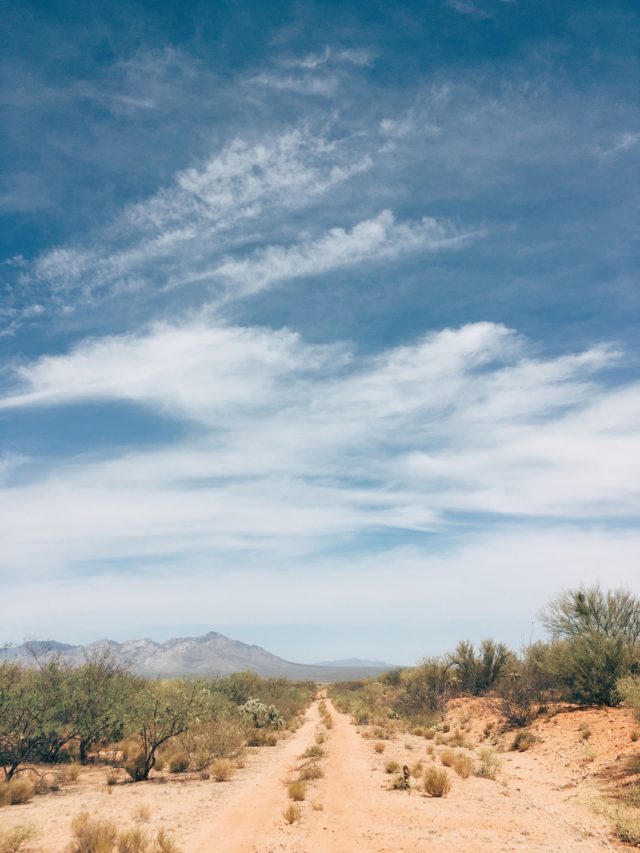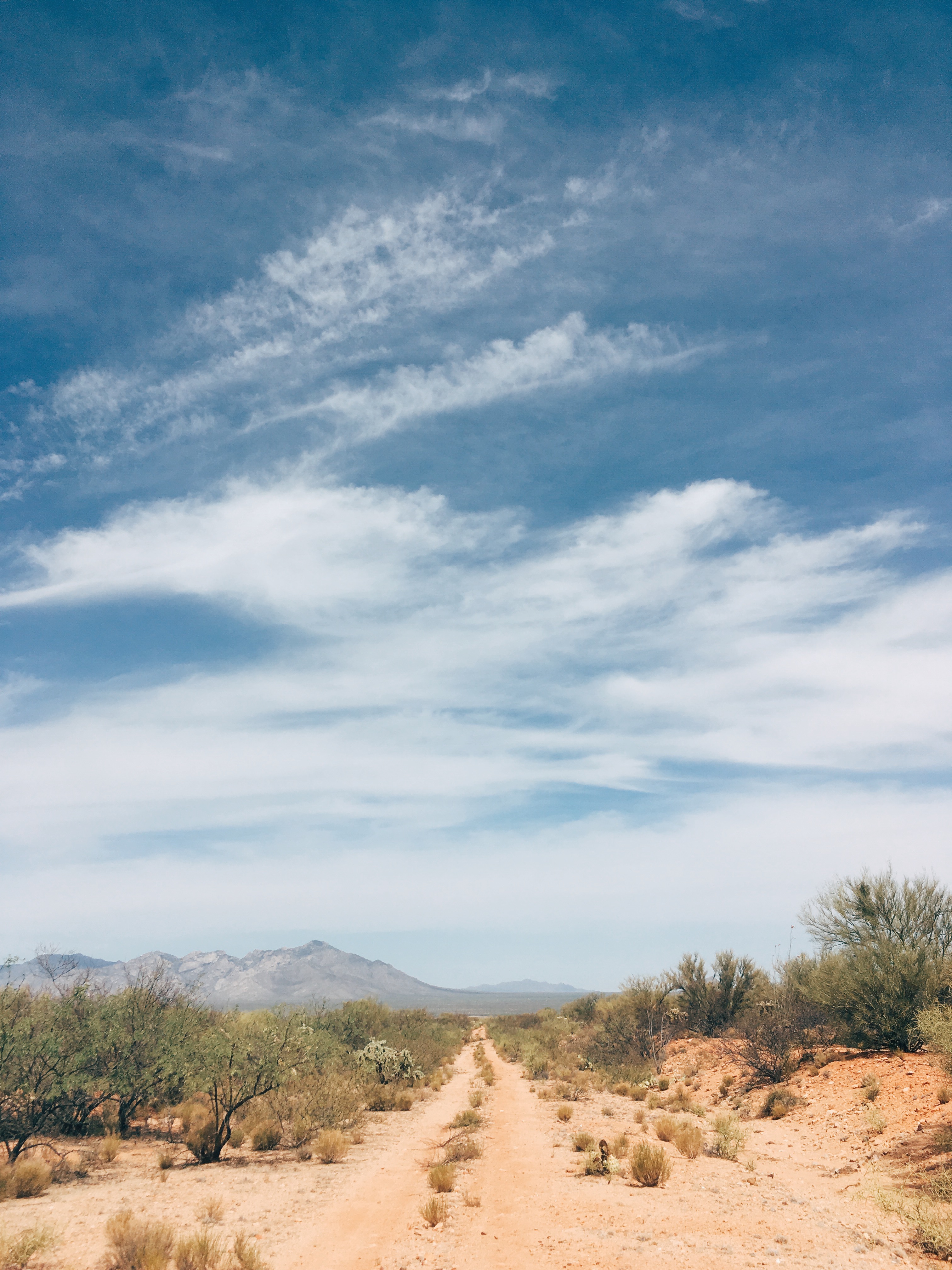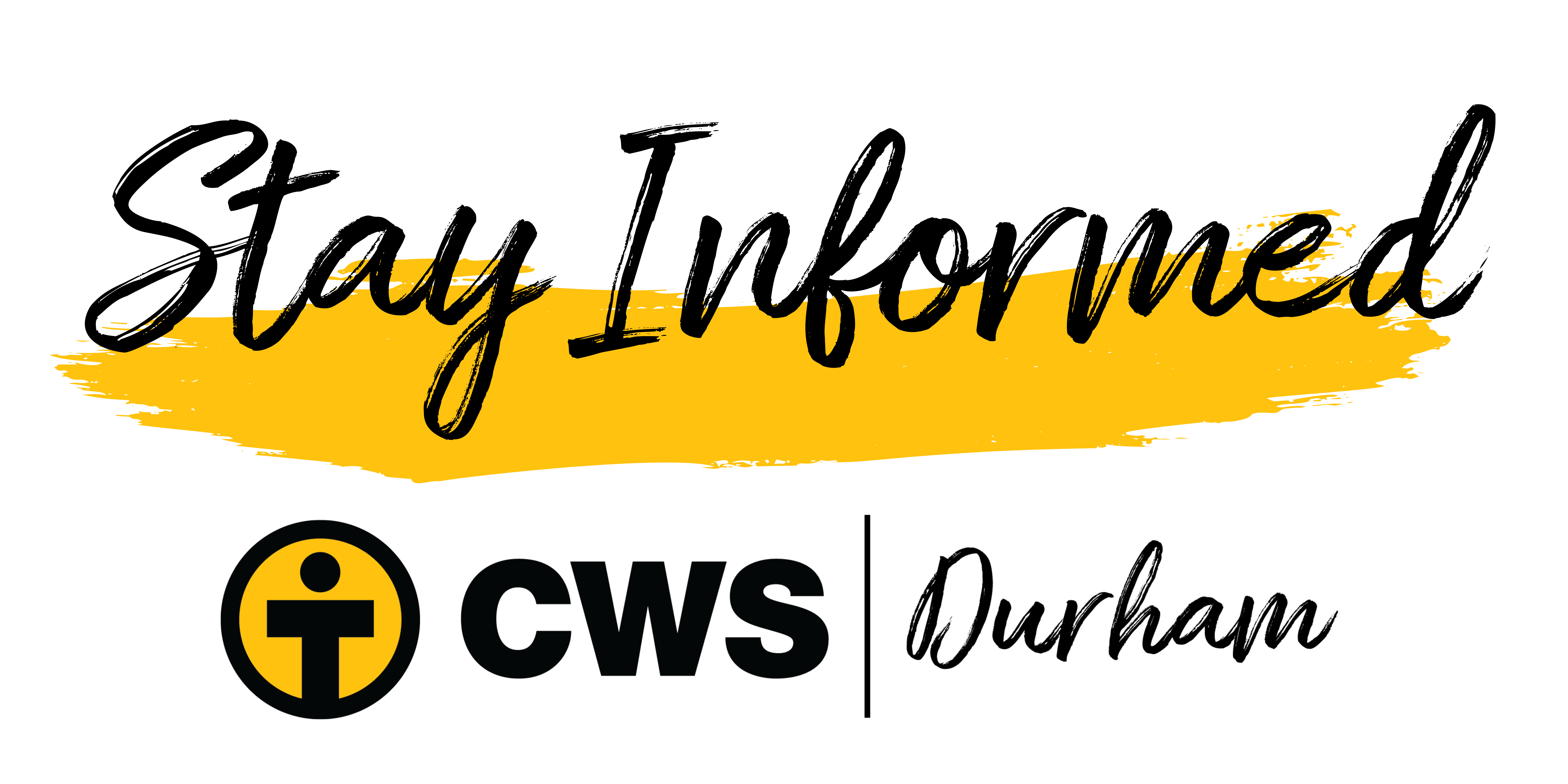
Desert in Arizona
This August, CWS Durham case manager Krista Camp was deployed to the U.S.-Mexico border for ten weeks to support a shelter for asylum-seekers leaving detention. Here are her thoughts from her first week:
During my first week at the shelter in Arizona, I met and interacted with over 60 men, women, and children who were recently released from detention and were starting out their journey to seek asylum here in the United States. For the past year and a half I have been working in Durham, North Carolina at Church World Service (CWS) serving refugees as a Reception and Placement Case Manager. Every day I work with clients who have endured more than any human should have to endure. Thankfully, once they arrive in the United States, they arrive to a fully furnished apartment, food, pocket money, bus passes, and a community that is ready and willing to welcome them. They also receive cultural orientation that helps them navigate the difficult and new American systems as well as employment and immigration orientation. We are their cultural guides; our goal is to empower our clients to feel like they are a part of the community and to become active participants in that community as well. We want our clients to feel at home in Durham and we want to help them flourish there.
Arizona is similar to Durham in this regard. However, there is one stark contrast between the shelter here and CWS: while CWS has up to 5 years to build and foster relationships with their clients and help them integrate into the community, the shelter has 1-3 days, with some families leaving as few as 6 hours after their arrival. With a revolving door of guests, I assumed it would be hard to create that sense of community in such a short amount of time, the constant coming and going only adding to the chaos. I was wrong, and what I experienced over the last week was utterly inspiring.
Unlike refugees, their journey does not end once they enter the U.S. In fact, the fight has just begun. These people are not welcomed when they enter; they have only the clothes on their backs and whatever they can carry with them through the desert as they escape the only life they have ever known. Once they enter the U.S. they are placed in cells as they await immigration’s decision to release them or place them in detention. Despite all of this, when they arrive at the shelter with their ankle monitors, their spirits are not broken. In fact, they are some of the strongest people I have ever met. I met mothers who were separated from their husbands at the border with no warning and no chance to say goodbye. I met a woman and her 2-month-old daughter from Guatemala and I met a father and his daughter who only speaks Acateco and can barely communicate in Spanish. Imagine how dire the situation in their home countries must be in order to risk their lives and the lives of their children for the promise of a better and safer future in a country they don’t know with citizens who speak a language they don’t understand. Until you are faced with it personally, you don’t realized how scared these people really are or what they went through to get here. Each and every one of the guests at the shelter had to leave their country because they feared for their lives. These types of experiences bond people and the guests at the shelter are no exception. Here it doesn’t matter where you are from, only that you survived. These people may not have met before they entered the shelter, but they are connected once they leave. Some trade contact information of their U.S. ties and others pray for the success of the other guests’ asylum cases. They all share this burden, which in turn makes it easier for each of them to carry. The community created here is unlike anything I have ever seen. People are gracious and helpful from the moment they arrive and many shed tears when they have to leave (me included). With the compassion and kindness that I saw throughout my first week, I was in awe. We should be welcoming these people into our country. It is not their fault that their countries are in turmoil, but it will be ours if we send them back to die.
Stay tuned for more updates from Krista in the coming weeks. You can read her second update here. If you would like to support the work of CWS Durham, explore our website to learn how you can get involved or donate today at https://cwsrdu.org/give/.


